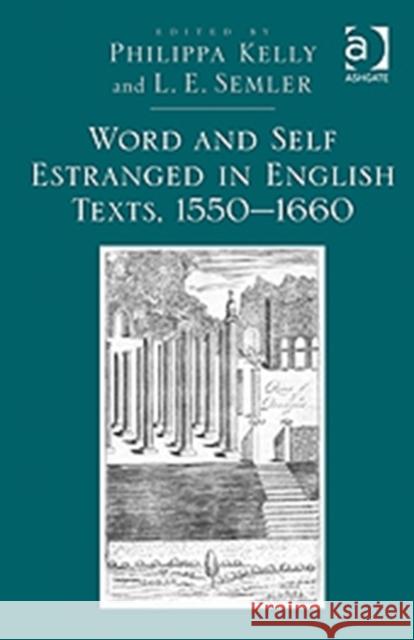Word and Self Estranged in English Texts, 1550-1660 » książka
Word and Self Estranged in English Texts, 1550-1660
ISBN-13: 9781409400370 / Angielski / Twarda / 2010 / 244 str.
Word and Self Estranged in English Texts, 1550-1660
ISBN-13: 9781409400370 / Angielski / Twarda / 2010 / 244 str.
(netto: 741,76 VAT: 5%)
Najniższa cena z 30 dni: 705,23
ok. 16-18 dni roboczych.
Darmowa dostawa!
The essays in Word and Self Estranged in English Texts, 1550-1660, consider diverse historical contexts for writing about 'strangeness'. They draw on current practices of reading to present contrasts and analogies within and between various social understandings. In so doing they reveal an interplay of thematic and stylistic modes that tells us a great deal about how, and why, certain aspects of life and thinking were 'estranged' in sixteenth and seventeenth century thinking. The collection's unique strength is that it makes specific bridges between contemporary perspectives and early modern connotations of strangeness and inhibition. The subjects of these essays are 'strange' to our ways of thinking because of their obvious distance from us in time and culture. And yet, curiously, far from being entirely alien to these texts, some of the most modern thinking-about paradigms, texts, concepts-connects with the early modern in unexpected ways. Milton meets the contemporary 'competent reader', Wittgenstein meets Robert Cawdrey, Shakespeare embraces the teenager, and Marvell matches wits with French mathematician Rene Thom. Additionally, the early modern texts posit their own 'others', or sites of estrangement-Moorishness, Persian art, even the human body-with which they perform their own astonishing maneuvers of estrangement and alignment. In reading Renaissance works from our own time and inviting them to reflect upon our own time, Word and Self Estranged in English Texts, 1550-1660 offers a vital reinterpretation of early modern texts."











